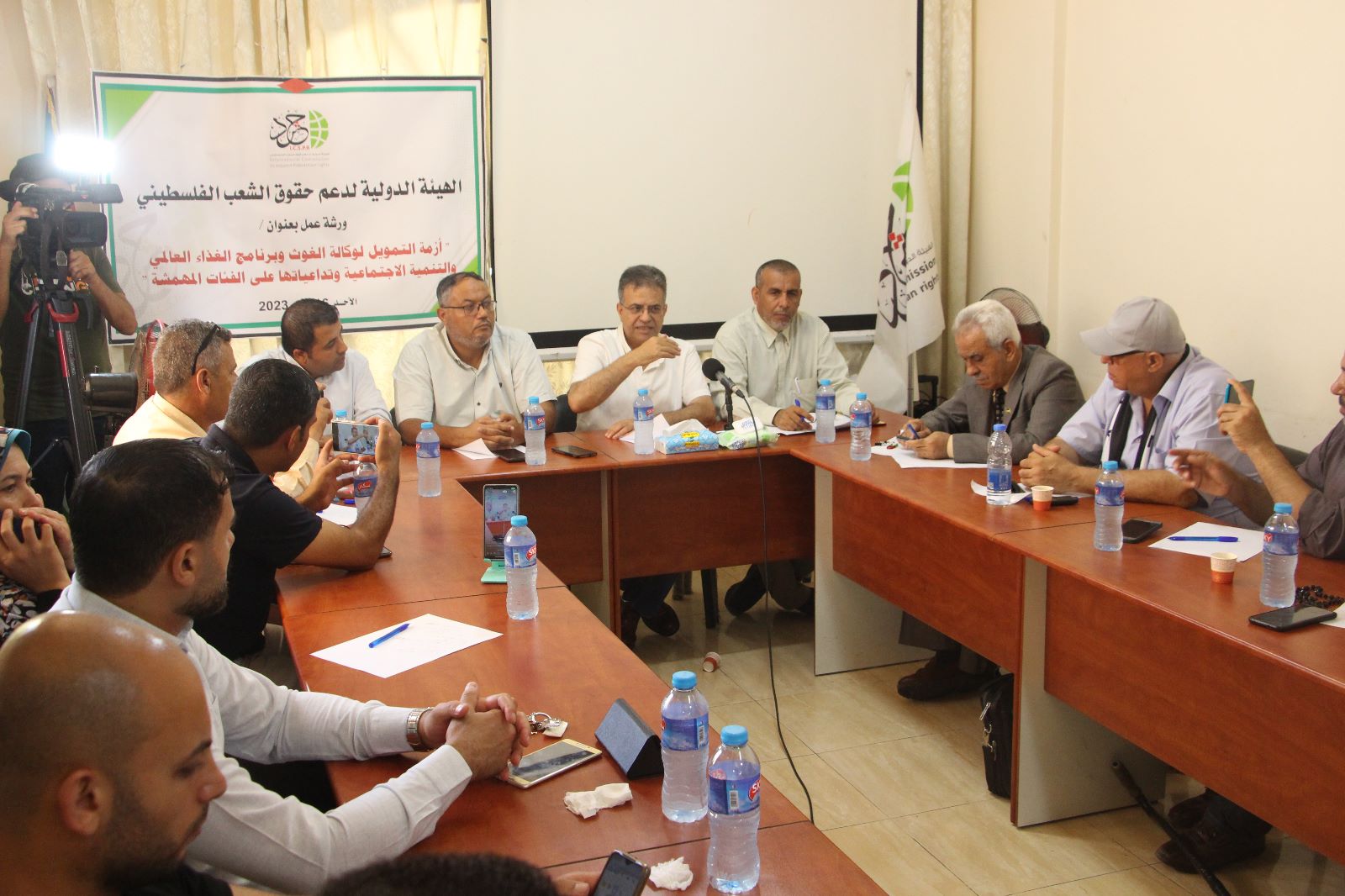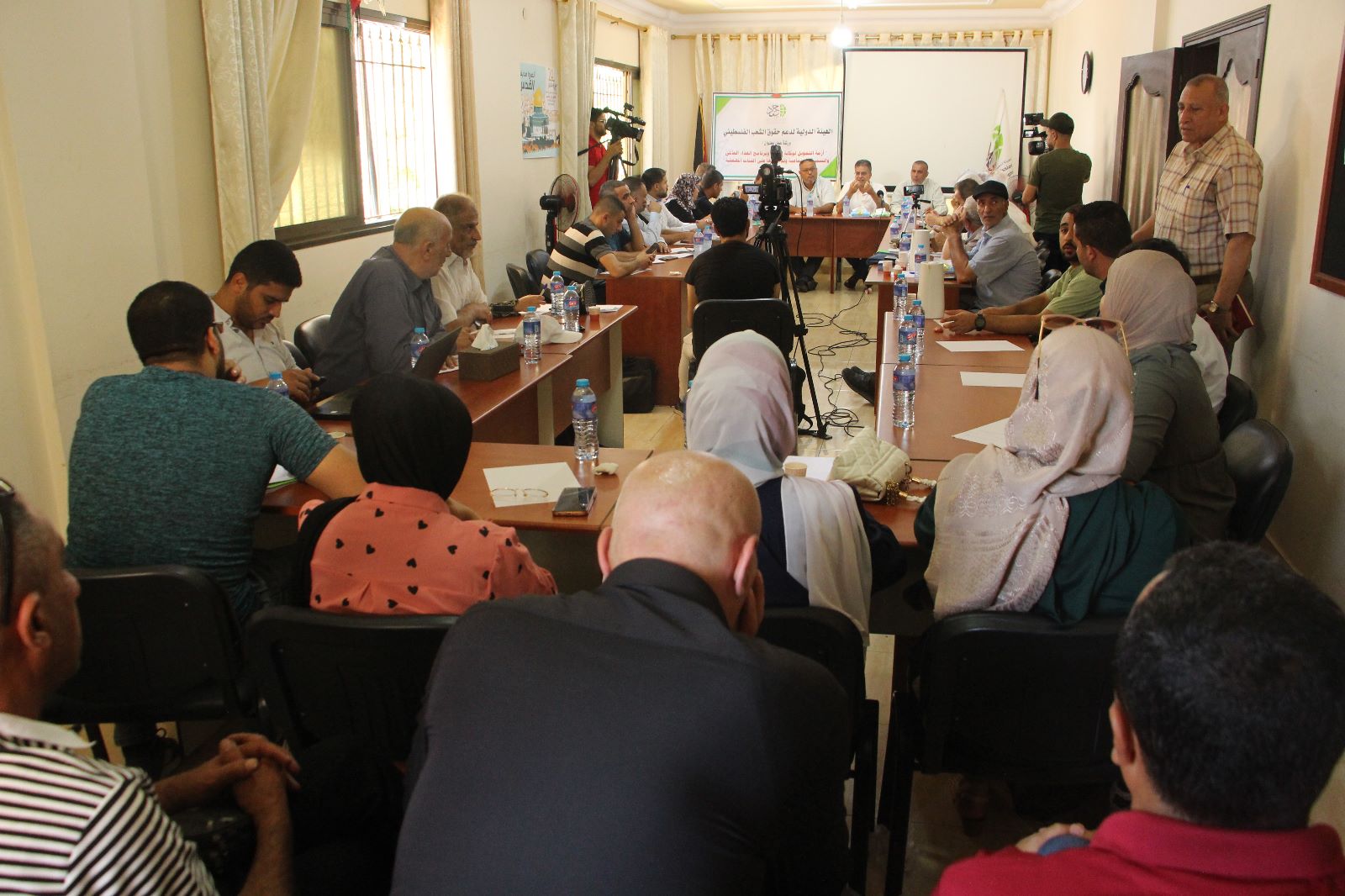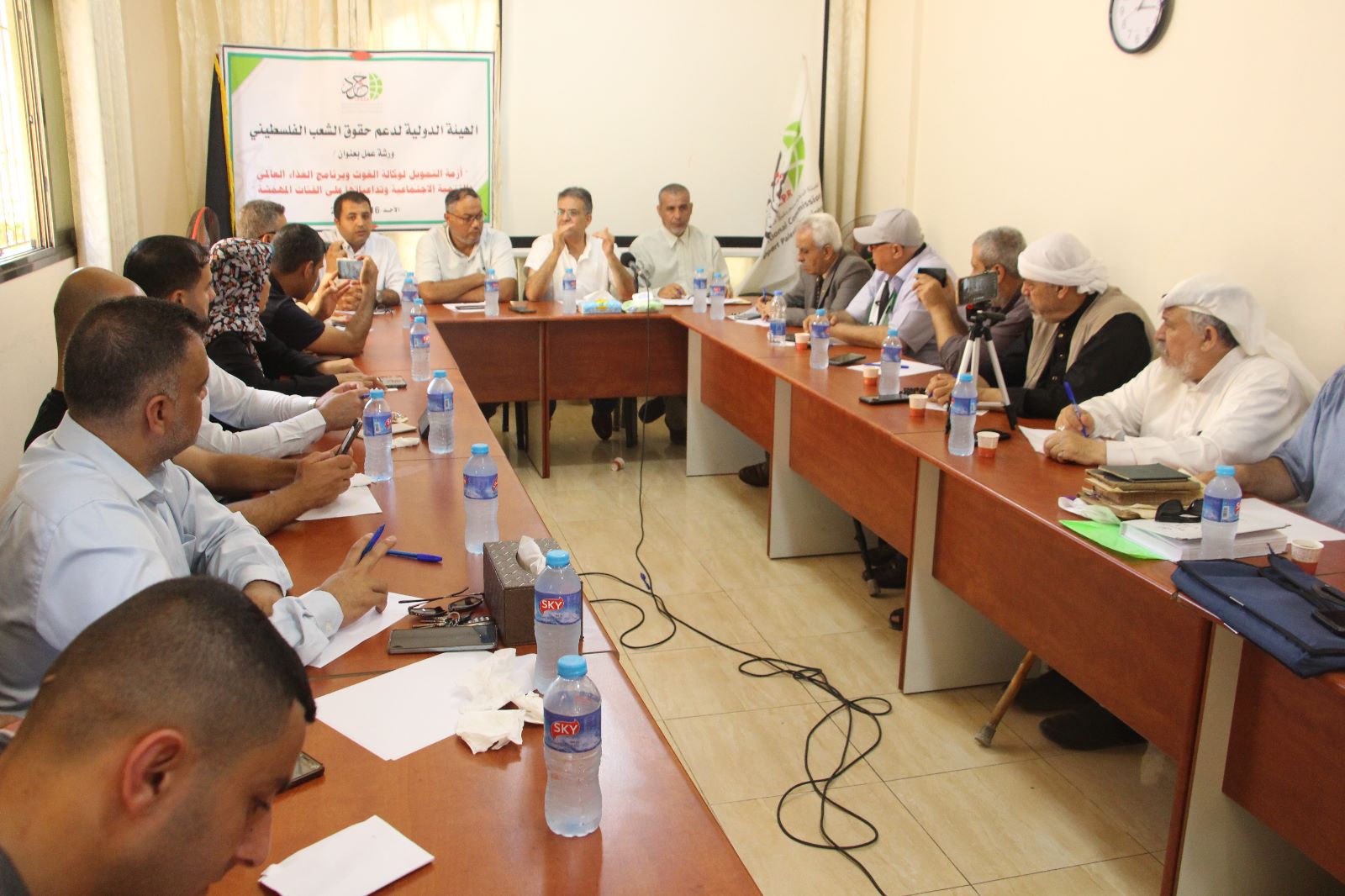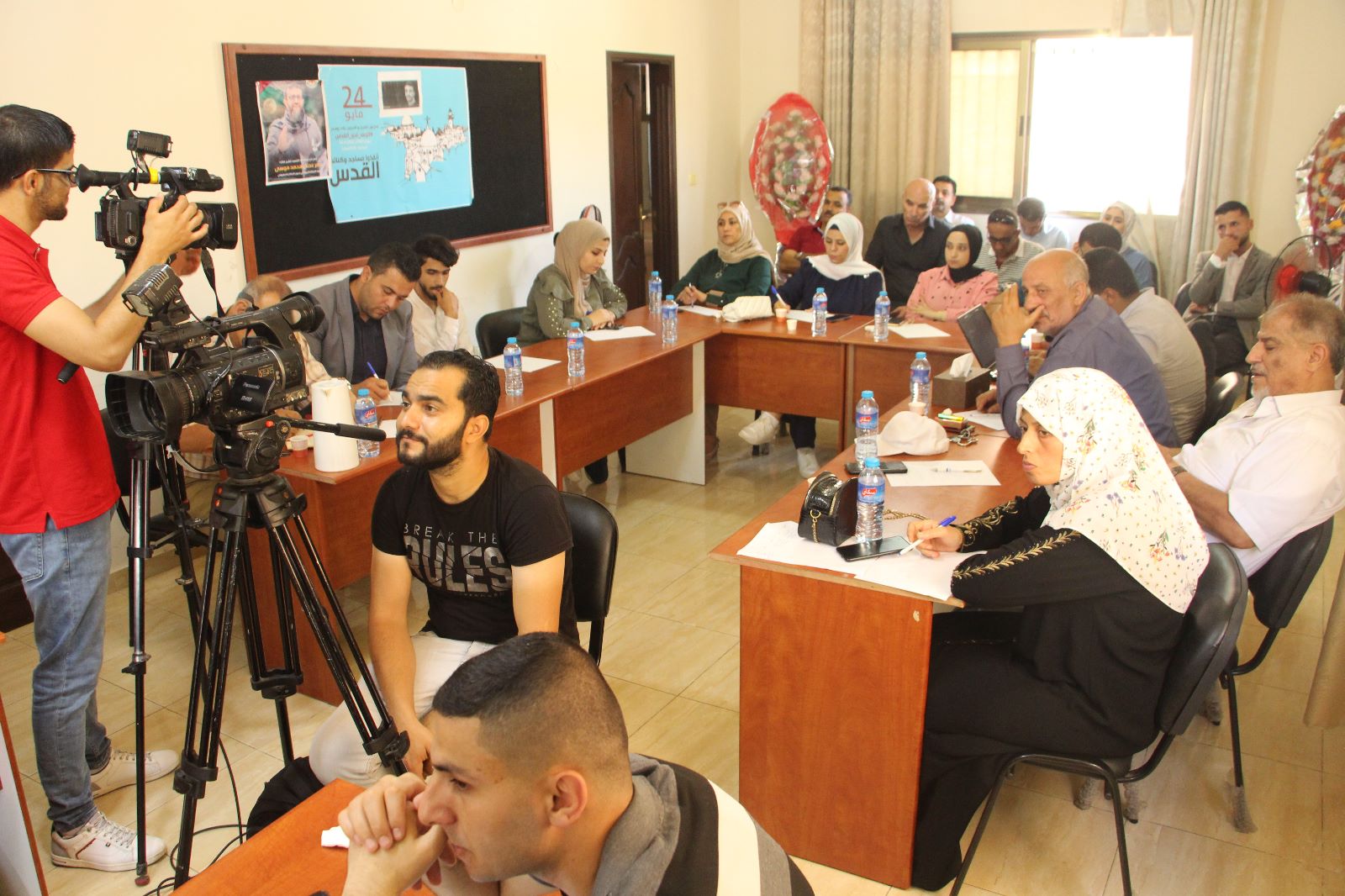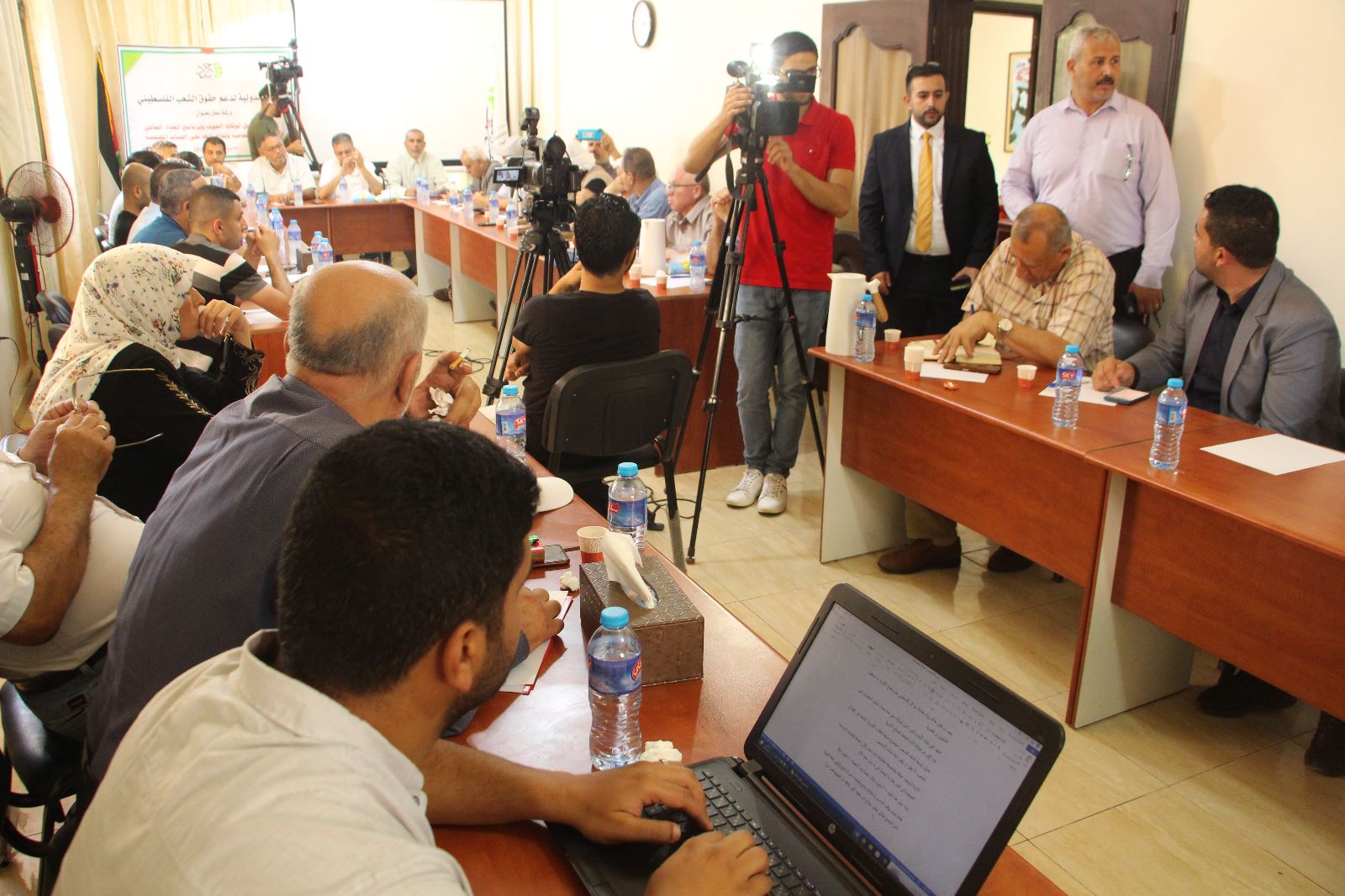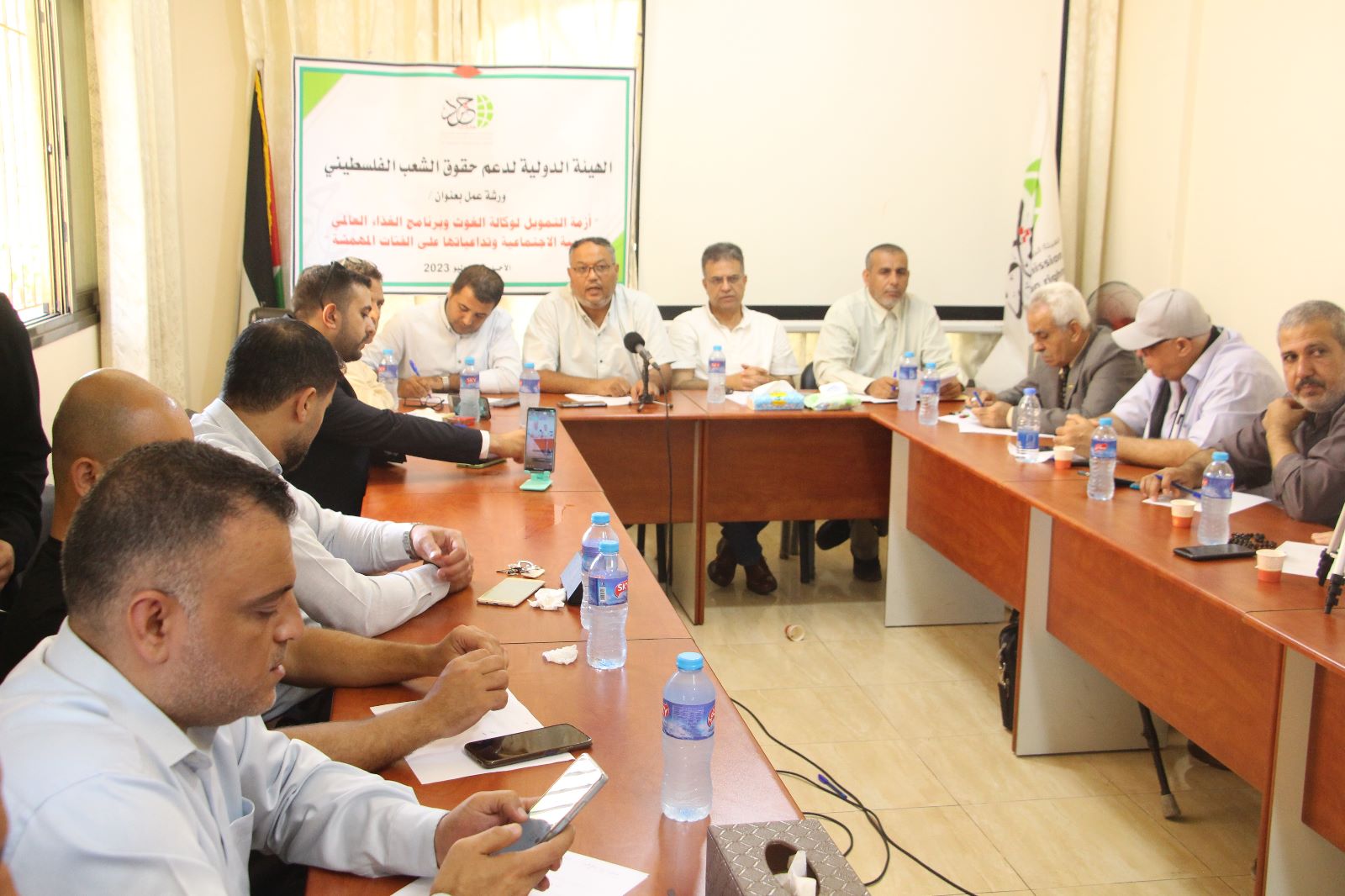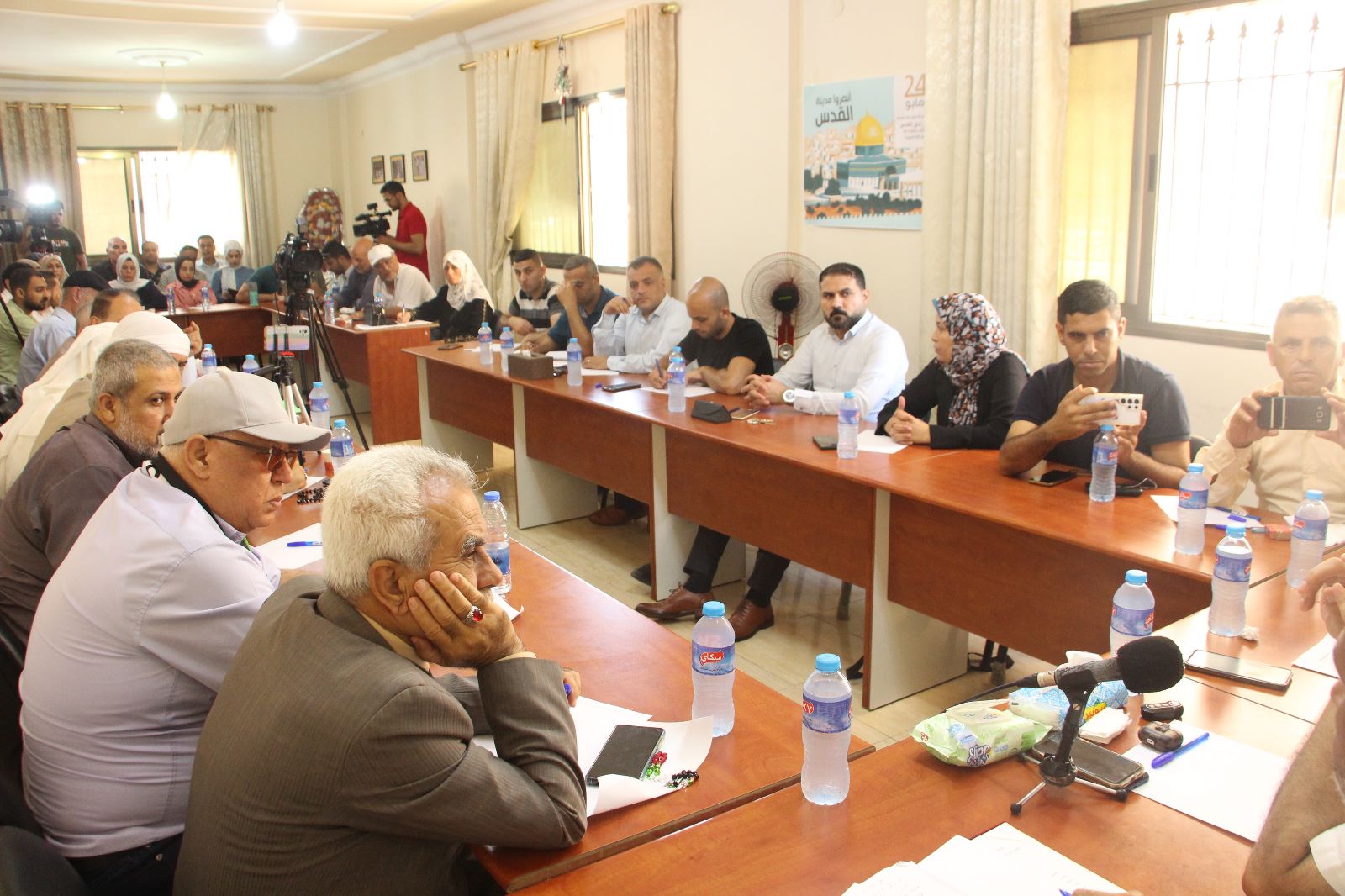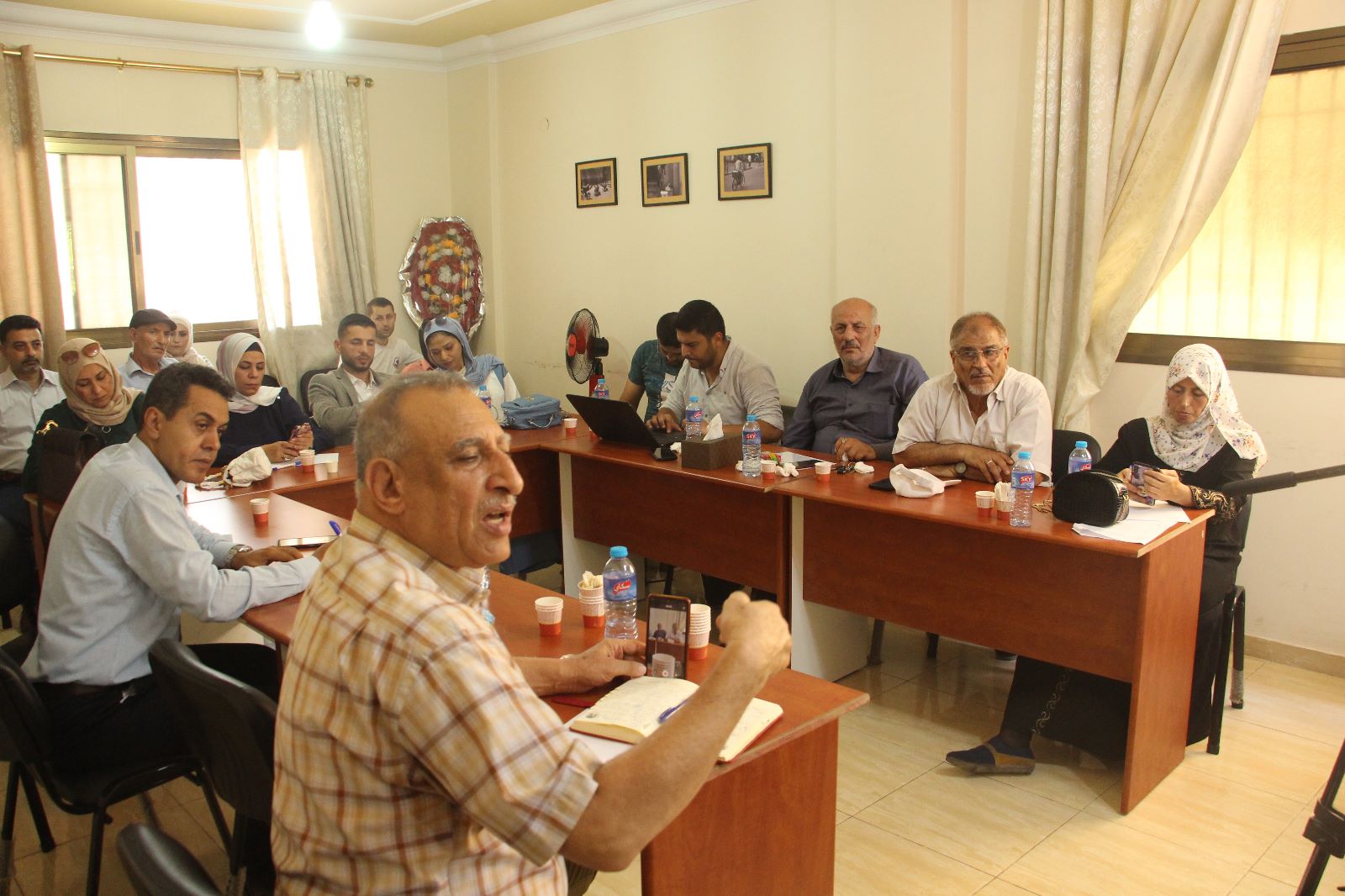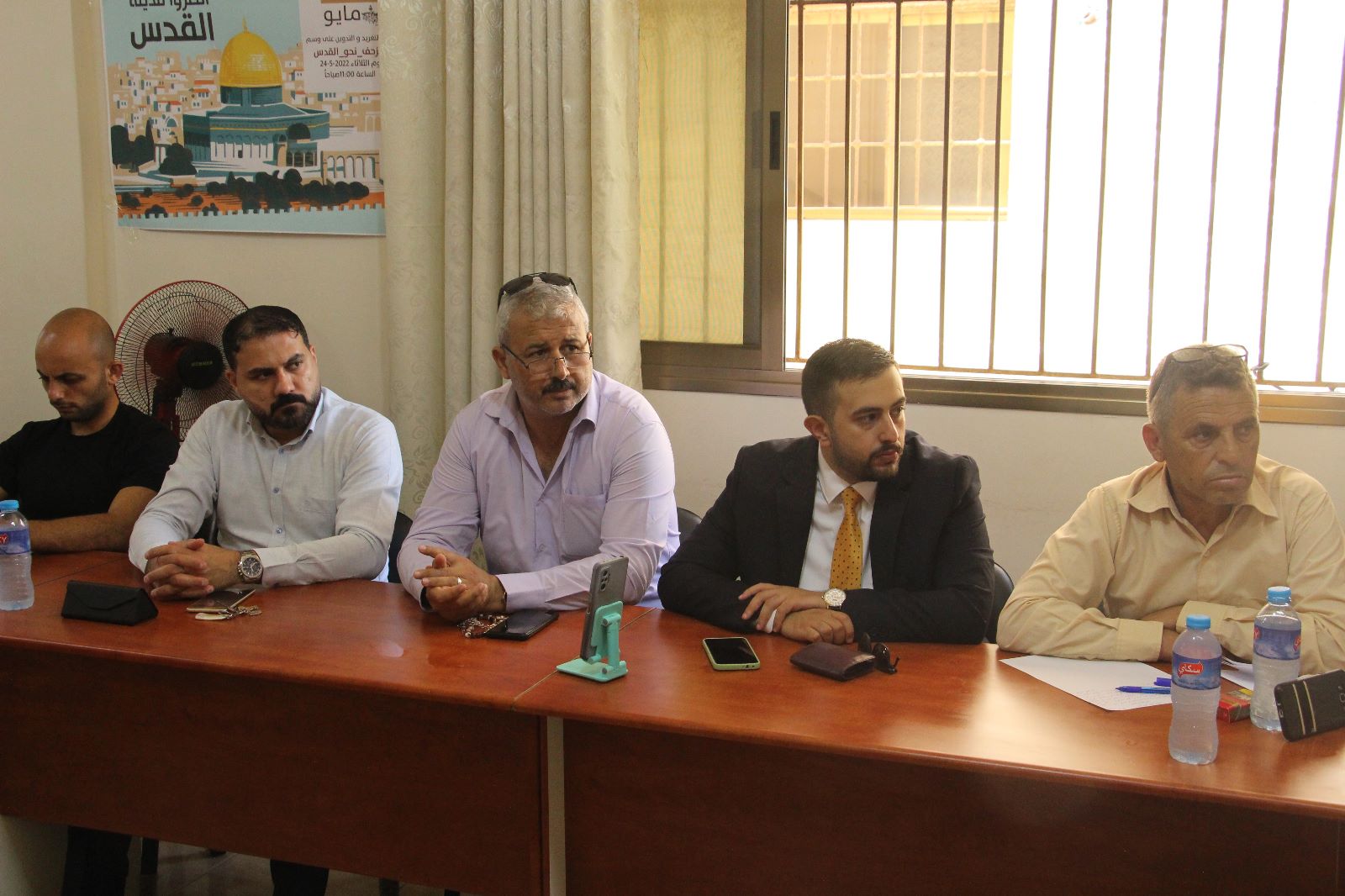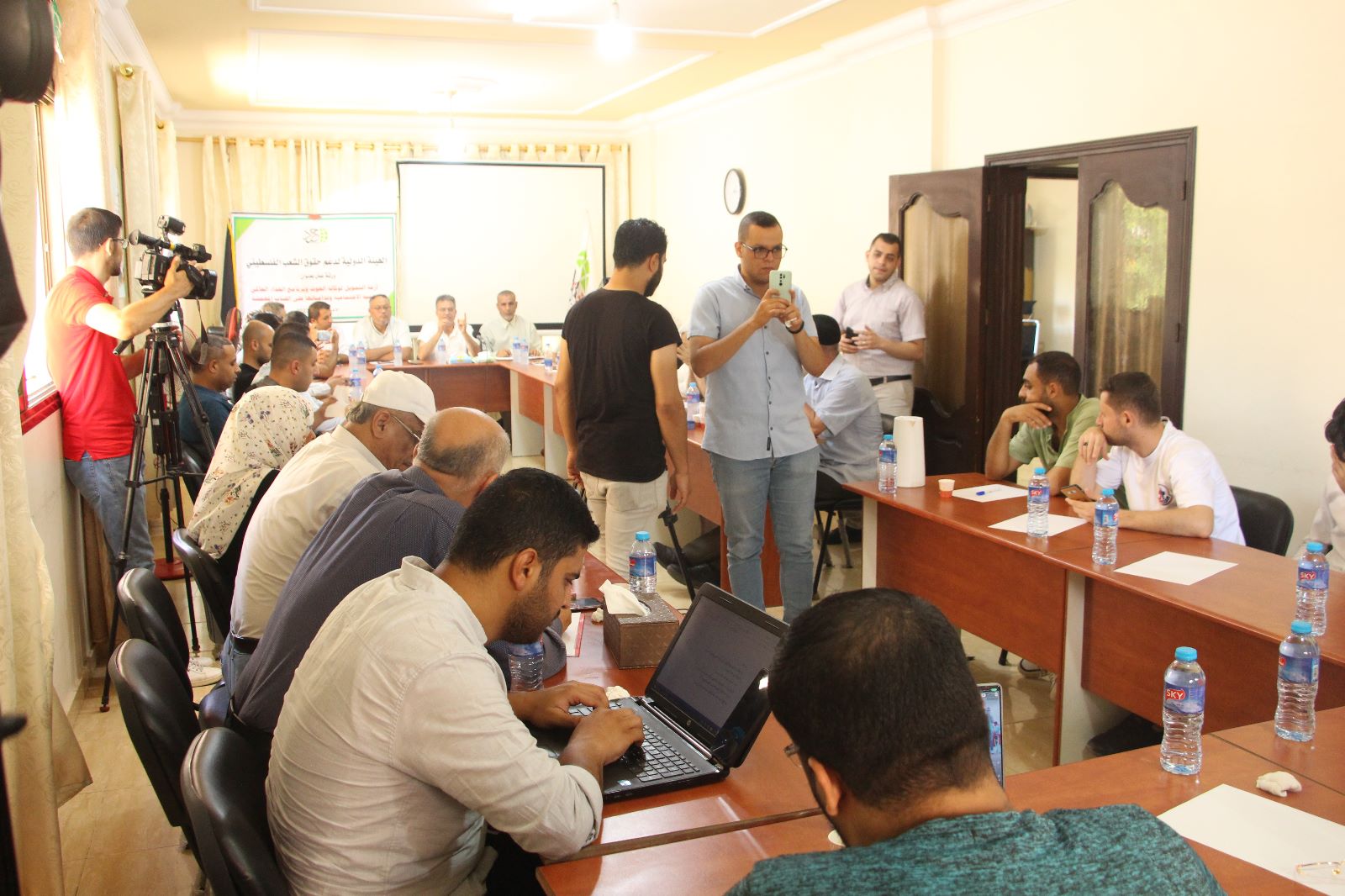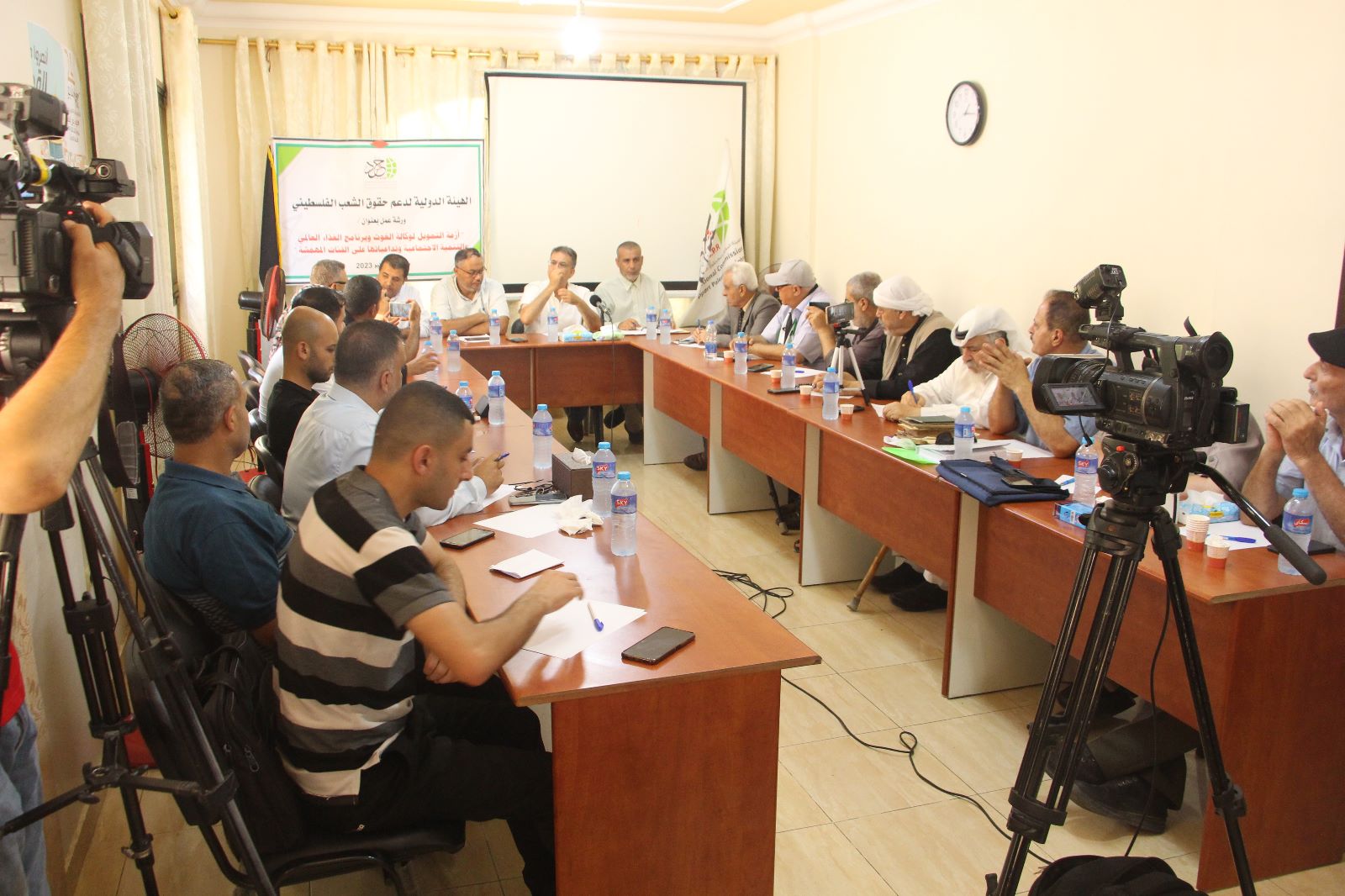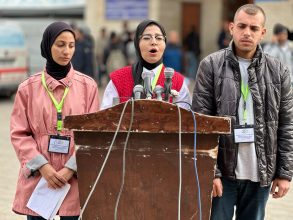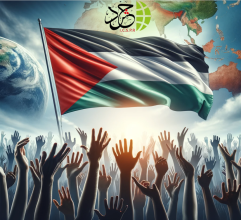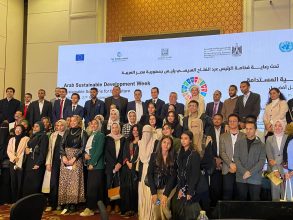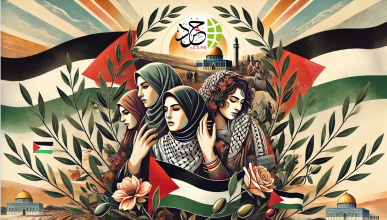
During a conference held by “Hashd,” experts discuss solutions to the effects of the UNRWA funding issues on social development.
Reference number: 63/2023
Date: July 18, 2023
Native language: Arabic
Press release
During a conference held by “Hashd,” experts discuss solutions to the effects of the UNRWA funding issues on social development.
The International Commission to Support Palestinian “Hashd” held a workshop today, Sunday, 7/16/2023, at its headquarters in Gaza City, titled “The funding crisis for UNRWA, the World Food Program, and social development, and its Repercussions on disadvantaged groups,” with the participation of a group of lawyers, economists, and youth activists at its headquarters in Gaza City.
Participants in the workshop recommended that a crisis committee be formed in collaboration with UNRWA, the refugee beneficiary community and civil and international organizations to mitigate the obstacles facing UNRWA, that the United Nations fill any deficit in the UNRWA budget, and that the Palestine Liberation Organization engage in a diplomatic struggle to obtain a decision from the General Assembly to fill any deficit in the UNRWA budget.
They also demanded that they lead an international campaign to request that the United Nations General Assembly allocate a fixed budget for UNRWA, similar to the specialized agencies of the United Nations, which would qualify it to carry out its basic and emergency duties for the Palestinian refugee community, with the need to put the Palestinian house in order, end the division, rebuild the Liberation Organization’s institutions, and neutralize people’s anger, with the importance of reversing the collective sanctions imposed on the Gaza Strip and the need for regular aid to vulnerable groups, and this requires a pressured popular movement that transcends all Palestinian factions.
According to Adnan Abu Hasna, a spokesman for the UN Relief and Works Agency for Palestinian Refugees (UNRWA), “UNRWA is suffering from a serious financial crisis that may threaten its operations and programs, indicating that it suffers from a general budget deficit of about $200 million, which consists of operating expenses, programs, and salary payments, as UNRWA has become more vulnerable to political changes in the world.”
He advised against the suspension of UNRWA operations and programs owing to the organization’s severe financial problems, saying that UNRWA is working hard to bridge the gap and maintain operations.
Abu Hasna expressed optimism that the agency will be able to close the gap by the end of next August. For years, UNRWA has had serious financial challenges, which have hampered its capacity to offer services to Palestinian refugees.
Then he stated that there is a significant move by UNRWA on multiple levels, such as an endeavor to get a bigger portion of the United Nations budget in favor of UNRWA, grow the donor base, and appeal to the private sector in Palestine.
Also highlighted that there is a big drive by UNRWA on multiple levels, such as an endeavor to gain a larger portion of the United Nations budget in favor of the UNRWA budget, grow the donor base, and appeal to the private sector in Palestine.
In turn, Riyad Al-Bitar, Director General of the General Department of Planning and International Cooperation, stated that the Gaza Strip’s population is suffering from difficult economic and social conditions as a result of the continuous Israeli aggression and blockade imposed for more than 16 years, as well as global epidemics and disasters, and the impact of the Russian-Ukrainian crisis, as these crises combined, have had a direct impact on the gradual economic collapse.
According to the Palestinian Central Bureau of Statistics’ labor force survey for 2022, the Gaza Strip has a poverty rate of 60% and an unemployment rate of 45.3%. According to a survey of social and economic conditions as well as the state of food security in the Palestinian territories, more than 63% of the Gaza Strip’s population suffers from food insecurity, and figures released by the United Nations Conference on Trade and Development show that 80% of the Gaza Strip’s population is dependent on ever-changing international aid.
Al-Bitar reported that the poor in the Gaza Strip meet their basic needs through five programs, including the cash transfer program (affairs check), funded by the European Union and the Palestinian Authority, and serves approximately 80,000 families every three months. 20% of the help budgeted for 2021 has already been spent.
And 30% of the value of aid planned for 2022, which will be returned to disbursement in October 2022 following the resumption of European support to the Palestinian Authority, but there are concerns about the program’s irregularity, as there are no guarantees of its continuation, and the food program (unified coupon) funded by UNRWA, which benefits about 220 thousand families (1,141,775 refugee individuals), and the WFP voucher program, funded by the World Food Program, from which about 46 thousand families benefit, and programs Emergency aid provided by local and international charities.
He mentioned the consequences of reduced international funding, which included the loss of food security for more poor families, the failure of any development plans and directions, deterioration of health conditions, particularly for those with chronic diseases, the elderly, and people with disabilities, an increase in cases of women and children being subjected to domestic violence and exploitation, a decline in societal peace, and an increase in societal violence.
The increase in pressure and demand for services provided by local institutions, the lack of trust in the international community, the erosion of human capital in society, the difficulty of moving towards sustainable development in light of the increased demand of poor families for relief, the migration of young people, and the increase in psychological stress. Family disintegration and increased divorce rates for economic reasons.
According to Subhi Al-Maghrabi, spokesman for the Higher Authority for Claiming the Rights of the Poor and Social Affairs Beneficiaries, the last allowance received by social affairs beneficiaries was several days before Eid Al-Fitr, and it came after several claims and appeals made by the beneficiaries.
He explained that the beneficiaries of the affairs are waiting for their allocations to meet their family’s needs and pay off their debts, stressing that the authority is obligated to disburse the allocations as soon as possible, but there is procrastination in this file for technical matters, expressing his fear of further procrastination.
He emphasized that the beneficiaries of the affairs have previous financial rights, and the Palestinian Authority should work to re-disburse them as soon as possible, explaining that payments start at 750 shekels and can reach a maximum of 1800 shekels per family, depending on their social status.
Finished.


